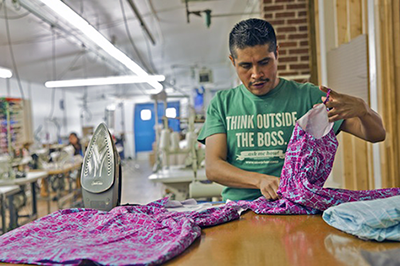
The Small Business Administration (SBA) last week hosted the second of two listening sessions to engage with cooperative stakeholders on the implementation of the Main Street Employee Ownership Act (P.L.115-232). NCBA CLUSA participated in this listening session, as well as one held at SBA’s headquarters earlier in March.
The bipartisan Main Street Employee Ownership Act expanded SBA loan programs to encourage broad-based ownership structures like co-ops. Importantly, this bill requires SBA to consider alternatives to a lending requirement called a personal guarantee. SBA requires personal guarantees as collateral in case the business owner is unable to repay the loan. Sole proprietor business owners generally use their homes to satisfy this requirement.
Dozens of stakeholders joined on the virtual conference call, demonstrating the strength of the cooperative community. We heard from groups like the U.S. Federation of Worker Cooperatives, Neighboring Food Co-op Association, and Project Equity. These and other groups explained the value that cooperatives bring to their communities and their positive economic impact.
NCBA CLUSA’s comments were centered on the resiliency of cooperatives, the needs that co-ops meet in their local economies, and the successful lending to cooperatives without personal guarantees in U.S. and abroad.
SBA’s second listening session was originally scheduled to take place in Kansas City, Missouri. NCBA CLUSA was appreciative that SBA heard the concerns of stakeholders and reformatted the second listening session to a virtual session, ensuring that more members of the cooperative community could participate.
SBA has missed the deadline required by the Main Street Employee Ownership Act to report to Congress on alternatives to the personal guarantee requirements, in part because the federal government was shut down for 35 days in the beginning of 2019. Now that SBA has fulfilled its obligation to engage with cooperative stakeholders, NCBA CLUSA looks forward to SBA’s report.
NCBA CLUSA will continue to work with SBA and Members of Congress on the importance of implementing the Main Street Employee Ownership Act so that cooperatives can gain greater access to SBA’s lending and technical assistance programs.


